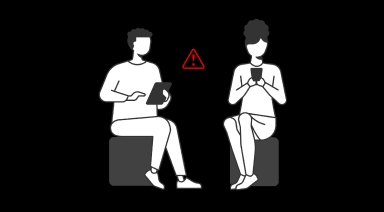2024 Mobile Security Index
Learn about the latest mobile security threats and how to help protect your organization.
Webinars
Watch the Mobile Security Index webinars for insightful discussions on mobile and IoT security.
On demand Key findings and rising challenges
Hear key findings from our panel of experts as they discuss rising mobile and IoT security challenges and how to help protect your organization.
On demand Mobile and IoT trends
Get insights on the top report findings and hear from experts from Verizon, Fortinet, Ivanti, Jamf and Lookout discuss how mobile and IoT security has evolved.
On demand Planning a social engineering defense
Discover comprehensive, end-to-end solutions to help protect your business from social engineering attacks and help enhance your security posture.
On demand Mobile security in the modern workplace
Learn from experts at Jamf and Verizon about how to elevate mobile security for your organization in this new era of anywhere work.
On demand Evolution of the modern kill chain
Hear experts from Lookout and Verizon discuss how the modern kill chain has evolved and what you need to help defend against breaches.
Key resources

Insights into mobile security trends and threats
Get an overview of the escalating risks for mobile devices and the proactive measures you can take to help protect your organization.

Mobile and IoT usage risks for the Public Sector
Learn about the explosion of mobile and IoT usage and the potentially serious new risks it can pose for the Public Sector.
Products
Verizon Business Internet Security
Access powerful internet security solutions designed to proactively help defend your business against cyber threats.
Mobile Device Management
Enable device configuration, create user and app policies and set up control tools—to help keep your business productive and secure.
More insights
2024 Data Breach Investigations Report
Learn about the latest trends in real-world security incidents and breaches to help protect your organization.
2023 Mobile Security Index
Gain critical insights into the mobile threat landscape, and get tips from security experts on how to protect your organization.
2022 Mobile Security Index
Understand how to assess your mobile security environment and calibrate your defenses.
